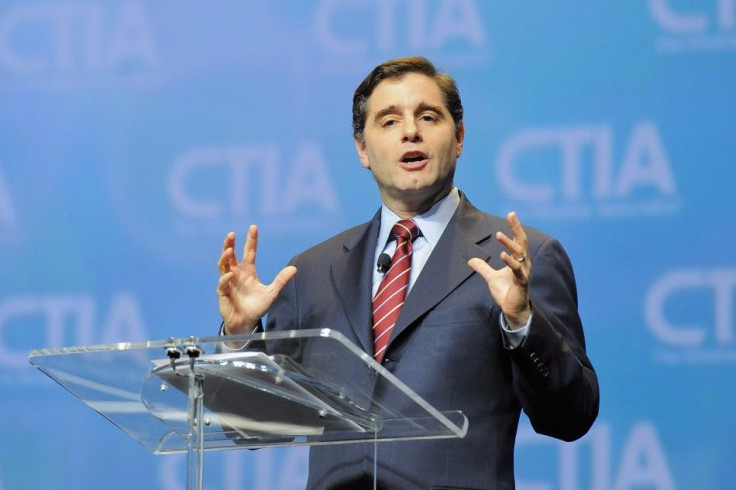FCC To Take A Hard Look At T-Mobile, AT&T Deal

AT&T and T-Mobile will have to prove to the Federal Communications Commission that their merger won't damage competition or stifle technological innovation, the agency said.
In a conference call with the media the FCC outlined the process for AT&T to get its $39 billion acquisition approved. Unlike earlier telecommunications mergers, this one is likely to face a higher level of scrutiny - and perhaps a higher bar.
The deal, announced last month, would combine the second- and fourth largest wireless providers in the U.S, making AT&T the single biggest carrier. AT&T filed its request for approval with the FCC on Friday.
The FCC's remit is to look at whether a combination of T-Mobile and AT&T serves the public interest. Usually that question is a minor one. But the competitive landscape is very different now than it was a decade ago. The onus will be on AT&T and T-Mobile.
AT&T has said that there is plenty of competition, especially large cities. Previously the FCC has agreed with that argument, but the last big mergers in the telecommunications industry occurred under a Republican president and Congress. The Obama administration takes a more interventionist view of the economy generally.
The combined company of AT&T would have 46 percent of all U.S. mobile subscribers, or 130 million customers. It would mean AT&T and Verizon control 80 percent of the market, and Sprint Nextel would have 17 percent. The FCC may decide to look at the wireless market in the country as a whole rather than focusing on regional markets.
The competition question also brings up antitrust concerns. The old AT&T was broken up in 1984 precisely because of its size - it was a monopoly, albeit a government-approved one. The Baby Bells have mostly been acquired and consolidated, and AT&T could be said to have reconstituted itself.
Another question for the FCC is whether the deal will stifle innovation, and prevent the introduction of new services. These questions were asked publicly by the FCC's chief economist, Jonathan Baker, in a speech to Washington antitrust lawyers.
Control of spectrum will be another area for the FCC to review. The stated policy of the FCC is to make more spectrum available, on the premise that there isn't enough of it. FCC officials said the agency will look at the amount of spectrum available for mobile services and what percentage is controlled by companies such as AT&T and T-Mobile. There is the very real possibility the FCC may ask the combined entity to give up some licenses, though such action is rare.
© Copyright IBTimes 2024. All rights reserved.











